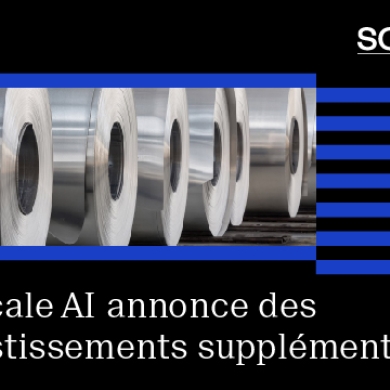21 juillet 2020
Un nouveau logiciel montréalais au cœur des avions
La hausse fulgurante de la complexité du développement de logiciels pour les avions a expliqué beaucoup de retards et de dépassements de coûts au cours des dernières années. Une entreprise montréalaise, Mannarino, s'y attaque en présentant cette semaine un nouveau système d'exploitation qui pourrait réduire les coûts de moitié. Publié le 21 juillet 2020 à 8h00 Spécialisée en services informatiques, principalement dans le domaine aéronautique, depuis 20 ans, l'entreprise a reçu il y a deux ans un investissement de 10 millions de dollars US provenant de Lockheed Martin afin de concevoir un nouveau système d'exploitation en temps réel (RTOS) à partir d'une page blanche. Le résultat est apparu lundi, jour d'ouverture de la version virtuelle du Salon aéronautique de Farnborough, qui aurait dû avoir lieu cette semaine en banlieue de Londres. Au cours des années, Mannarino a conçu sur commande des logiciels pour le contrôle des moteurs, la gestion de vol, les communications ou le réapprovisionnement en carburant en vol, par exemple. Chaque fois, elle était limitée par la vétusté des systèmes d'exploitation employés. Le système d'exploitation est le logiciel maître, auquel font appel les autres applications, un peu comme Windows dans un ordinateur ou iOS dans un iPhone. Les exigences envers un système installé à bord d'un appareil sont toutefois nettement plus élevées en termes de fiabilité, ce qui en multiplie les coûts. « Le principal commentaire que l'on recevait de nos clients, c'était que ces systèmes étaient trop chers », explique John Mannarino, fondateur de l'entreprise. « Nous essayons de réduire les coûts de 50 %. » Comme ces systèmes n'étaient pas conçus spécialement pour l'aéronautique, et que les volumes sont relativement faibles dans cette industrie, les clients se plaignaient aussi de la pauvre qualité du service qu'ils recevaient, affirme M. Mannarino. Système plus rapide et moins gourmand En partant d'une page blanche, l'entreprise a conçu un système qu'elle estime être deux fois plus rapide et moins gourmand de moitié en mémoire. Il pourra être employé sur tous les types d'appareils, des avions commerciaux aux hélicoptères militaires, en passant par les avions d'affaires et les drones de taille suffisante pour nécessiter une certification. L'un des marchés pour lesquels on anticipe la plus forte demande est celui des drones. John Mannarino, président de Mannarino Les clients principaux du nouveau logiciel seront vraisemblablement des fabricants d'avionique, dont Lockheed Martin. Le géant américain a fourni 10 millions US dans le cadre du programme de contreparties mis en place par le gouvernement fédéral. En vertu de ce programme, les contrats militaires obtenus par des entreprises étrangères doivent faire l'objet de contreparties équivalentes dans l'industrie locale. De l'entente avec Mannarino, Lockheed Martin n'obtient rien de plus que des crédits lui permettant de combler les exigences de ce programme, assure M. Mannarino. Elle n'est pas propriétaire du logiciel et ne détient aucun droit sur lui. Des discussions sont toutefois en cours pour faire de Lockheed Martin un client. Bien que l'entreprise entende d'abord se concentrer sur le marché aéronautique, dans lequel elle a le plus d'expertise, son système d'exploitation sera éventuellement aussi offert dans d'autres industries, dont la santé et le transport ferroviaire, ou même pour des applications industrielles. https://www.lapresse.ca/affaires/entreprises/2020-07-21/un-nouveau-logiciel-montrealais-au-coeur-des-avions.php


